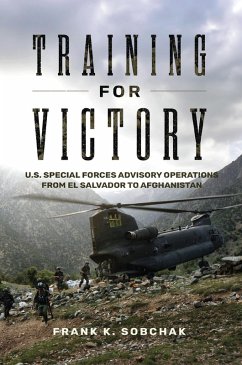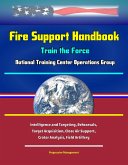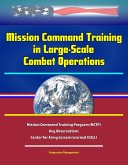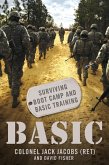One of the most difficult security challenges of the post-Cold War era has been stabilizing failing states in an era of irregular warfare. A consistent component of the strategy to address this problem has been security force assistance where outside powers train and advise the host nation's military.
Despite billions of dollars spent, the commitment of thousands of advisors, and innumerable casualties, the American efforts in Afghanistan and Iraq failed catastrophically. Nevertheless, among those colossal military disasters were pockets of success. The Iraqi Special Operations Forces (ISOF) held back the Islamic State in 2014 long enough to allow American and allied forces to flow back into the country, and many Afghan commando units fought to the bitter end as their country disintegrated around them.
What made those units successful while the larger missions ended disastrously? Author Frank K. Sobchak explores security force assistance across five case studies, examining what factors were most critical for U.S. Special Forces units to build capable partners like the ISOF and the commandos. More specifically, the book assesses the impact of five components of Special Forces advisory missions: language training and cultural awareness of the advising force; the partner force-to-advisor ratio; the advisors' ability to organize host-nation forces; whether advisors are permitted to guide in combat; and the consistency in advisor pairing.
Based on the experiences of U.S. Army Special Forces in El Salvador (1981-1991), Colombia (2002-2016), the Philippines (2001-2015), Iraq (2003-2011), and Afghanistan (2007-2021), Sobchak argues that the most crucial factors in producing combat-effective partners are consistency in advisor pairing and maintaining a partner force-to-advisor ratio of twelve special forces soldiers advising a company-sized force or smaller. Intriguingly, and counter to conventional wisdom, at first glance language training and cultural awareness do not seem to be critical factors, as most of the Green Berets that trained units in Iraq and Afghanistan lacked both capabilities. Despite an orthodoxy that argues the opposite, there is little evidence that combat advising is decisive in producing effective partners and there is conflicting evidence that language training and cultural awareness are important. Many of these findings, while focused on Special Forces operations and doctrine, could be used to improve the odds of success for larger security-force assistance missions as well.
Despite billions of dollars spent, the commitment of thousands of advisors, and innumerable casualties, the American efforts in Afghanistan and Iraq failed catastrophically. Nevertheless, among those colossal military disasters were pockets of success. The Iraqi Special Operations Forces (ISOF) held back the Islamic State in 2014 long enough to allow American and allied forces to flow back into the country, and many Afghan commando units fought to the bitter end as their country disintegrated around them.
What made those units successful while the larger missions ended disastrously? Author Frank K. Sobchak explores security force assistance across five case studies, examining what factors were most critical for U.S. Special Forces units to build capable partners like the ISOF and the commandos. More specifically, the book assesses the impact of five components of Special Forces advisory missions: language training and cultural awareness of the advising force; the partner force-to-advisor ratio; the advisors' ability to organize host-nation forces; whether advisors are permitted to guide in combat; and the consistency in advisor pairing.
Based on the experiences of U.S. Army Special Forces in El Salvador (1981-1991), Colombia (2002-2016), the Philippines (2001-2015), Iraq (2003-2011), and Afghanistan (2007-2021), Sobchak argues that the most crucial factors in producing combat-effective partners are consistency in advisor pairing and maintaining a partner force-to-advisor ratio of twelve special forces soldiers advising a company-sized force or smaller. Intriguingly, and counter to conventional wisdom, at first glance language training and cultural awareness do not seem to be critical factors, as most of the Green Berets that trained units in Iraq and Afghanistan lacked both capabilities. Despite an orthodoxy that argues the opposite, there is little evidence that combat advising is decisive in producing effective partners and there is conflicting evidence that language training and cultural awareness are important. Many of these findings, while focused on Special Forces operations and doctrine, could be used to improve the odds of success for larger security-force assistance missions as well.
Dieser Download kann aus rechtlichen Gründen nur mit Rechnungsadresse in A, D ausgeliefert werden.









